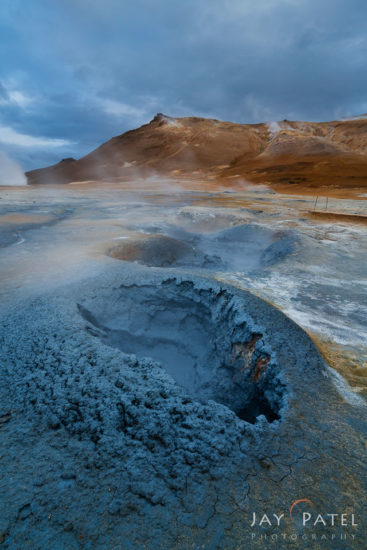Let’s face it…we all want to capture sharp photos. In order to do that, one of the first things you need to learn is to focus properly on your subject. So the question is,
What focus settings do I use on my camera?
What do you think about when you hear the term Hyperfocal Distance? Numbers and complicated math…right? That’s certainly what I thought when I first learned about the concept.
How I learned to use Camera Focus Settings
So how did I discover the proper focusing techniques? The story begins in Washington’s beautiful Olympic National Park. I was new to photography and was trying to shoot a gorgeous cascade in the Sol Duc Falls area. But I was having trouble getting a sharp image.
Like everyone else, I struggled at first to get the focus exactly where I wanted it. Some shots would turn out great, but many of them looked like the image you see above. I knew I wanted to get close to the foreground moss, but I didn’t know where exactly to set my focus or which camera settings would help me to get the most important parts of the scene tack-sharp. I tried using different focal lengths, but nothing seemed to help. I understood the principles and math behind the concept of hyperfocal distance in theory, but I had no idea how to apply those principles in the field.
I spent the next six months studying and practicing until I mastered the concept of hyperfocal distance. I took all of the theoretical information and applied my practical experience to it, developing an easy, five-step workflow that allows me to get sharp focus on my subject every time.
When I returned to that same spot in Olympic National Park, I had no trouble getting close to my subject AND getting everything sharply in focus. My camera was only inches away from the trillium flower in the above image, but I knew exactly where to focus and what focal length to use to highlight all the beautiful details of the scene.
The simple answer is that it depends on the situation. Getting the right focus requires you to think through the problem and then choose the correct focus settings and the right focusing strategy. Consult your camera’s manual to see what focus settings are available to you; your camera may not have all of the settings discussed below.
Birds in Flight
When you are talking about capturing images of birds in flight you are typically using a long lens (200mm or longer) to capture them. Focusing with a long lens is very critical because a tiny amount of focus adjustment can make your image blurry. In order to track the birds, I set my camera in continuous tracking mode and picked the widest possible focusing zone. This allows my camera to use ALL available focusing points to track the bird as it moves across the sensor.
Shooting a Moving Gecko in Hawaii
The motion of a gecko is not quite the same as the motion of birds in flight. A gecko’s motion is unpredictable. There are times when it sits perfectly still and other times when it’s on the move. This makes focusing more challenging then with flying birds. Here is how I ended up focusing on the gecko…
Capturing Everything Sharply in Focus
When my subject is static with a close foreground element, I use the Hyperfocal Distance Workflow to focus. This allows me to get everything sharply in focus, but requires me to focus at a specific distance. In this situation, I used a single focusing point and live view to set my focusing point exactly where I wanted it to be.
As you can see from the previous examples, getting it focused in-camera is about so much more than just knowing how your camera works. Getting really sharp images can be a challenge, but you can make it happen with a little knowledge and practice. Our In Sharp Focus course offers a solid focusing workflow that highlights technical knowledge and encourages creativity. Filmed on the beautiful Big Island of Hawaii, this course shows you how to get sharp photos every time.
Visual Wilderness https://ift.tt/2yluuVo
Sourced by Time Trap Photography sharing the best photography tips, news and tricks throughout the industry. Time Trap Photography is dedicated to freezing those special moments in life that can be revisited and admired for generations to come. - Shannon Bourque
Please visit our main site for booking availability and rates.

Receive valuable industry knowledge delivered free to your email each day.












No comments:
Post a Comment
Thank you so much for your comment. A moderator will review and approve all relevant posts. We appreciate your support and encourage you to stay with us by subscribing to our email updates. Where you can easily pick and choose what photography subjects interests you. Subscription link: http://bit.ly/photo-sub